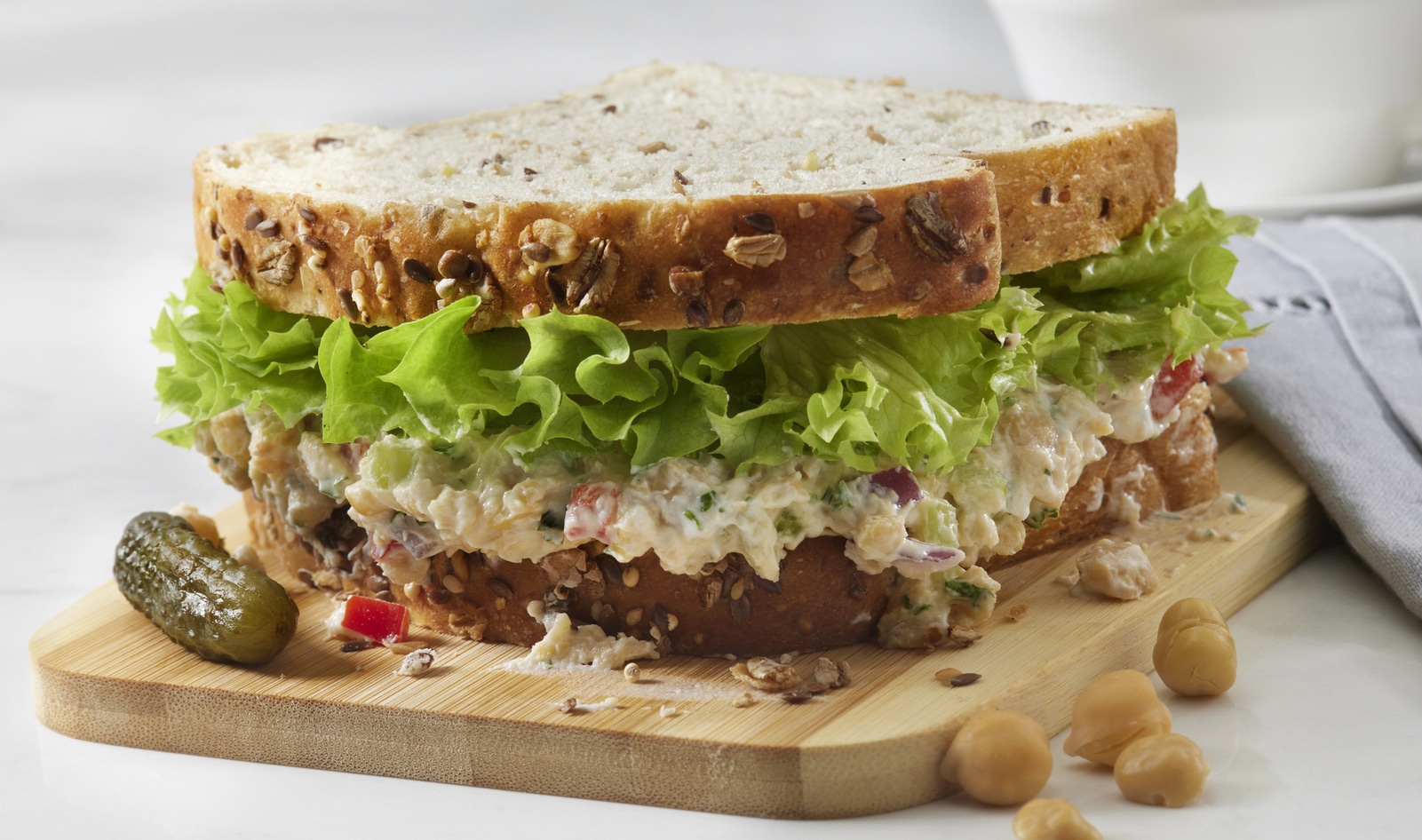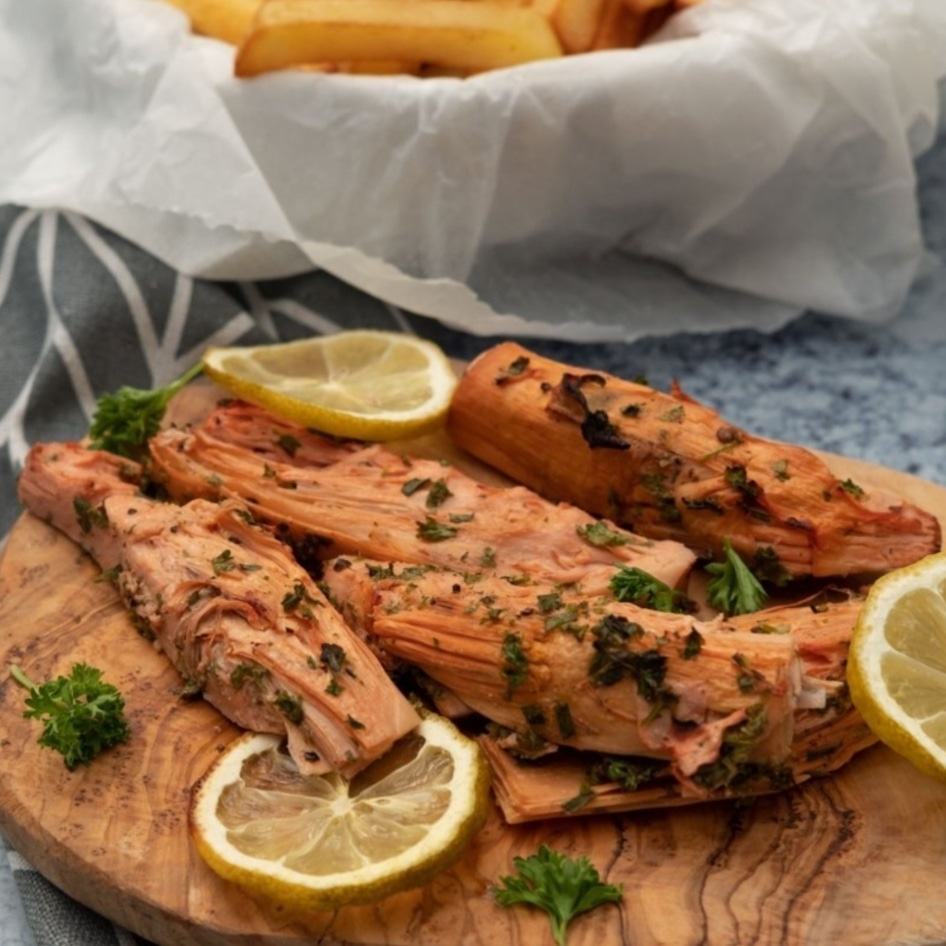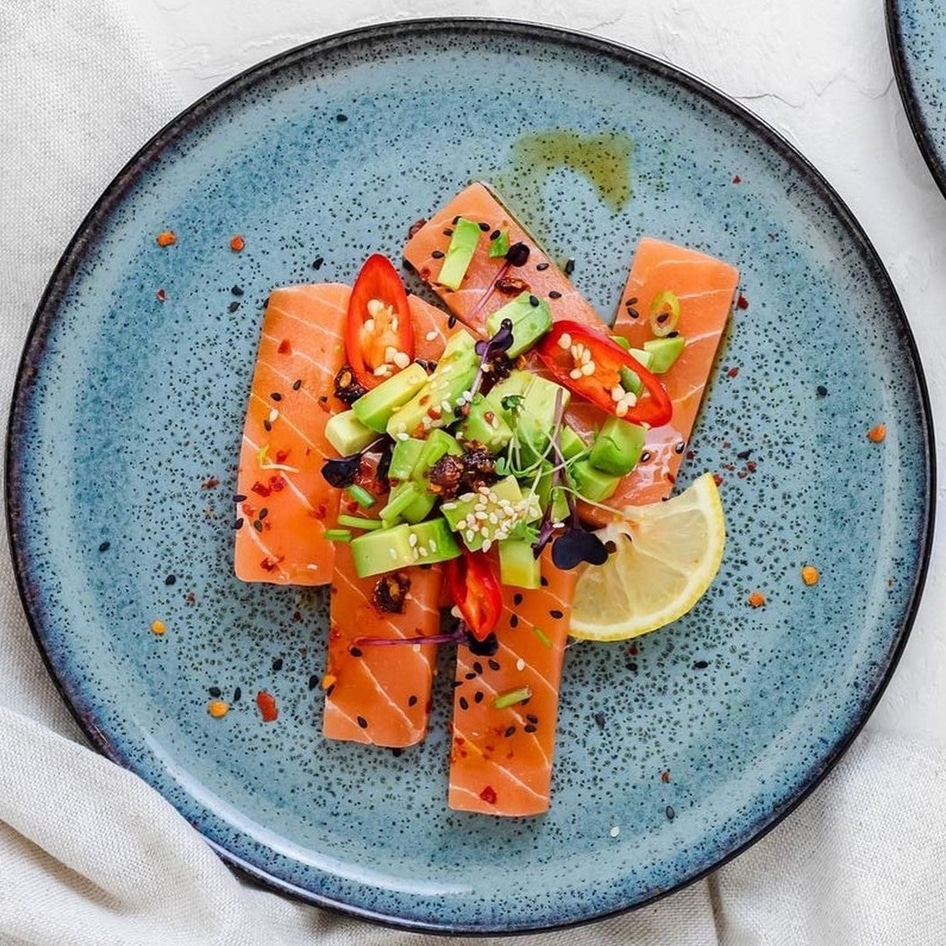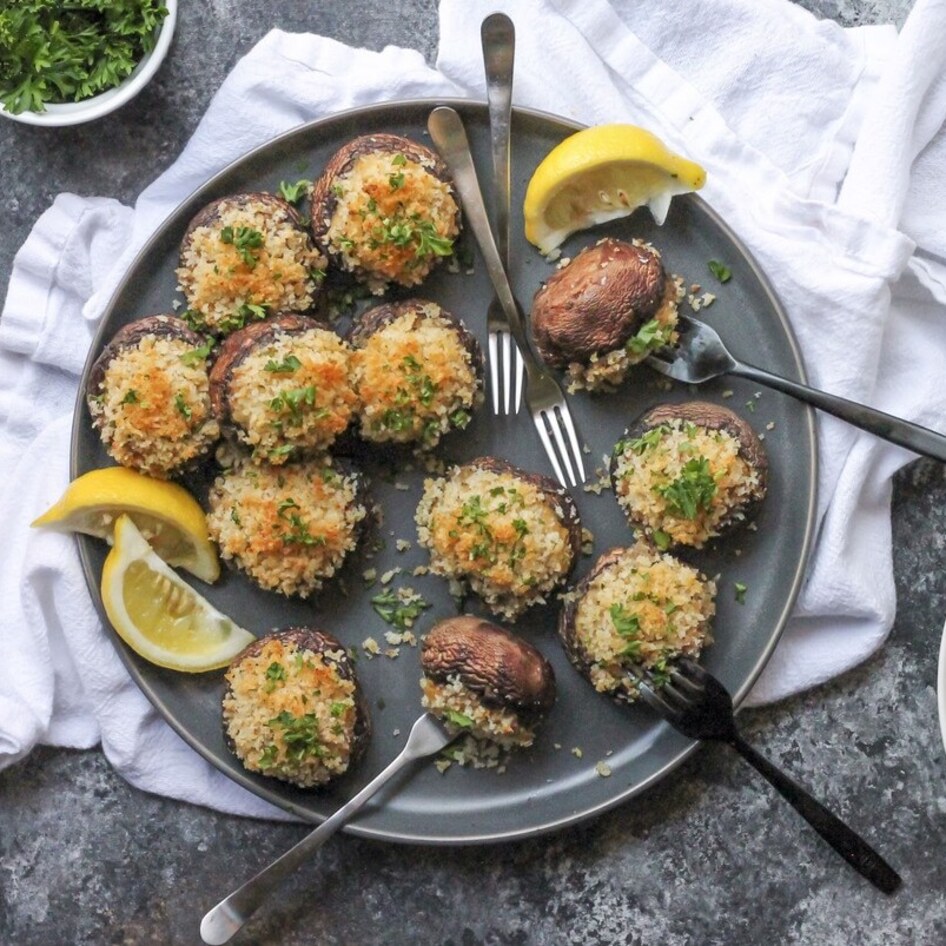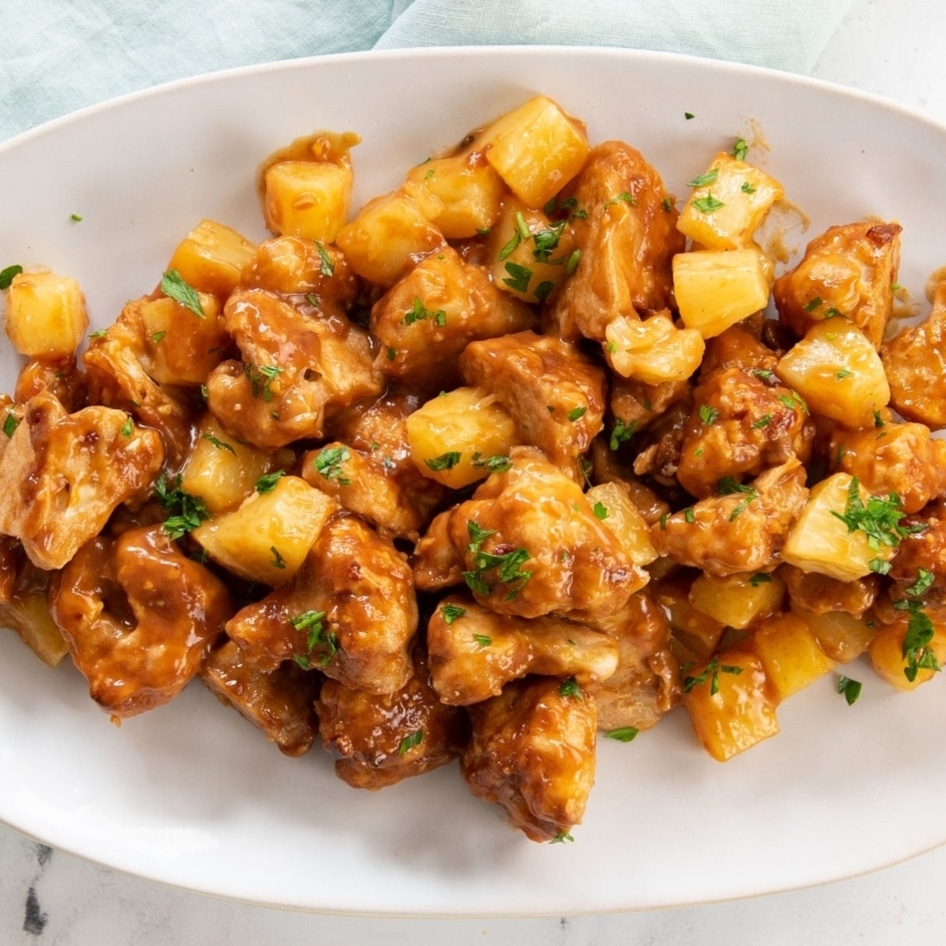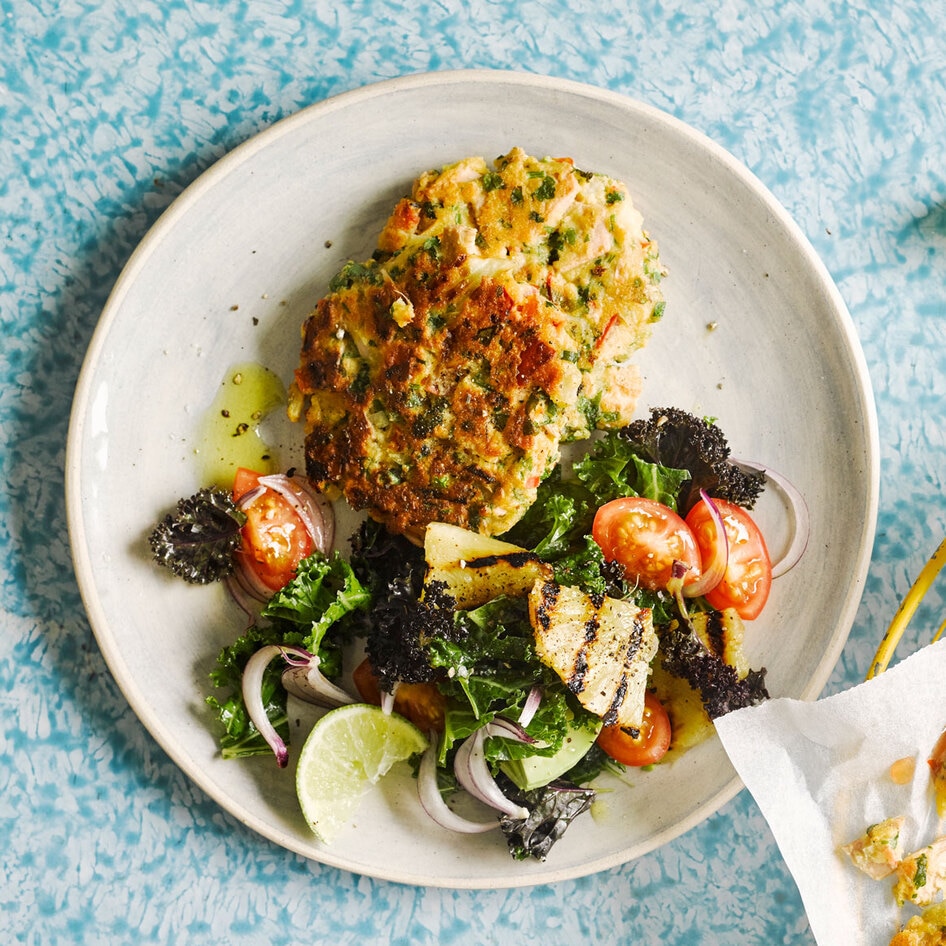Tuna is a staple in many diets. However, the saltwater fish face significant threats from overfishing, climate change, and the depletion of marine resources. The global demand for tuna has led to the overfishing of several species, with more than one-third of the world’s tuna stocks being overexploited.
This has caused severe disruptions in marine ecosystems, as tuna play a crucial role as apex predators. Additionally, tuna fishing practices contribute to bycatch, where unintended species, including dolphins and sea turtles, are caught, further harming marine biodiversity.
Health risks are also associated with tuna consumption, primarily due to mercury contamination. Tuna, particularly larger species like bluefin and albacore, can accumulate high levels of mercury, which can be harmful to humans, especially pregnant women and young children. Mercury poisoning can lead to severe neurological and developmental problems.
Moreover, while tuna is a significant source of protein globally, with more than 5 million tons of tuna consumed annually, the environmental cost of this consumption is substantial, as the tuna industry is responsible for emitting approximately 2.2 million metric tons of CO2 annually.
So what does a tuna salad sandwich-loving person do? Turn to plants, of course.
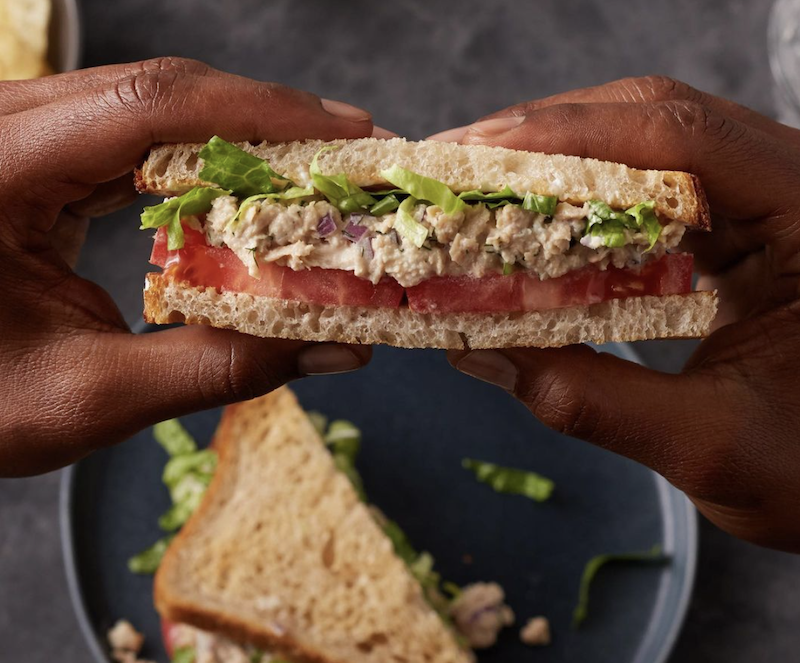 Good Catch
Good Catch
While there are a variety of excellent plant-based tuna products on store shelves these days, if you’re looking for a homemade solution, here’s how some savvy chefs have replaced the fish in sandwiches and salads.
Chickpeas: a versatile, time-tested base
For seasoned vegan chefs, chickpeas have long been a popular choice for creating fish-free tuna due to their protein content and adaptable texture.
Chef Tal Ronnen is the mastermind behind celebrity hotspot Crossroads Kitchen, where fish alternatives have been on the menu for decades and are often featured in creative platings such as a seasonal seafood tower with oyster shooters, calamari, lobster mushroom cocktails, ceviche, smoked carrot lox, and clams casino—all made from mushrooms, hearts of palm, and other plants.
When it comes to vegan tuna salad, Ronnen has been making his the classic way for the past 25 years: mashing chickpeas and combining them with tuna salad seasonings and add-ins, perfecting the recipe by evolving it ever so slightly over the years.
“When I first started making this recipe, there were really no commercial vegan fish alternatives that would have worked so I was looking for something high protein like chickpeas,” Ronnen tells VegNews.
“The recipe basically stayed the same but sometime ago, after soaking the chickpeas and cooking them, we started adding kombu to the water which adds an extra layer of umami and a little taste of the ocean,” Ronnen says.
The chef relies on plant-based mayonnaise to bring that signature creaminess of a proper tuna salad. One of his favorites? “Follow Your Heart has always had a great vegan mayo though and that has always helped,” the chef says. “I think it’s been around for something like 40 years.”
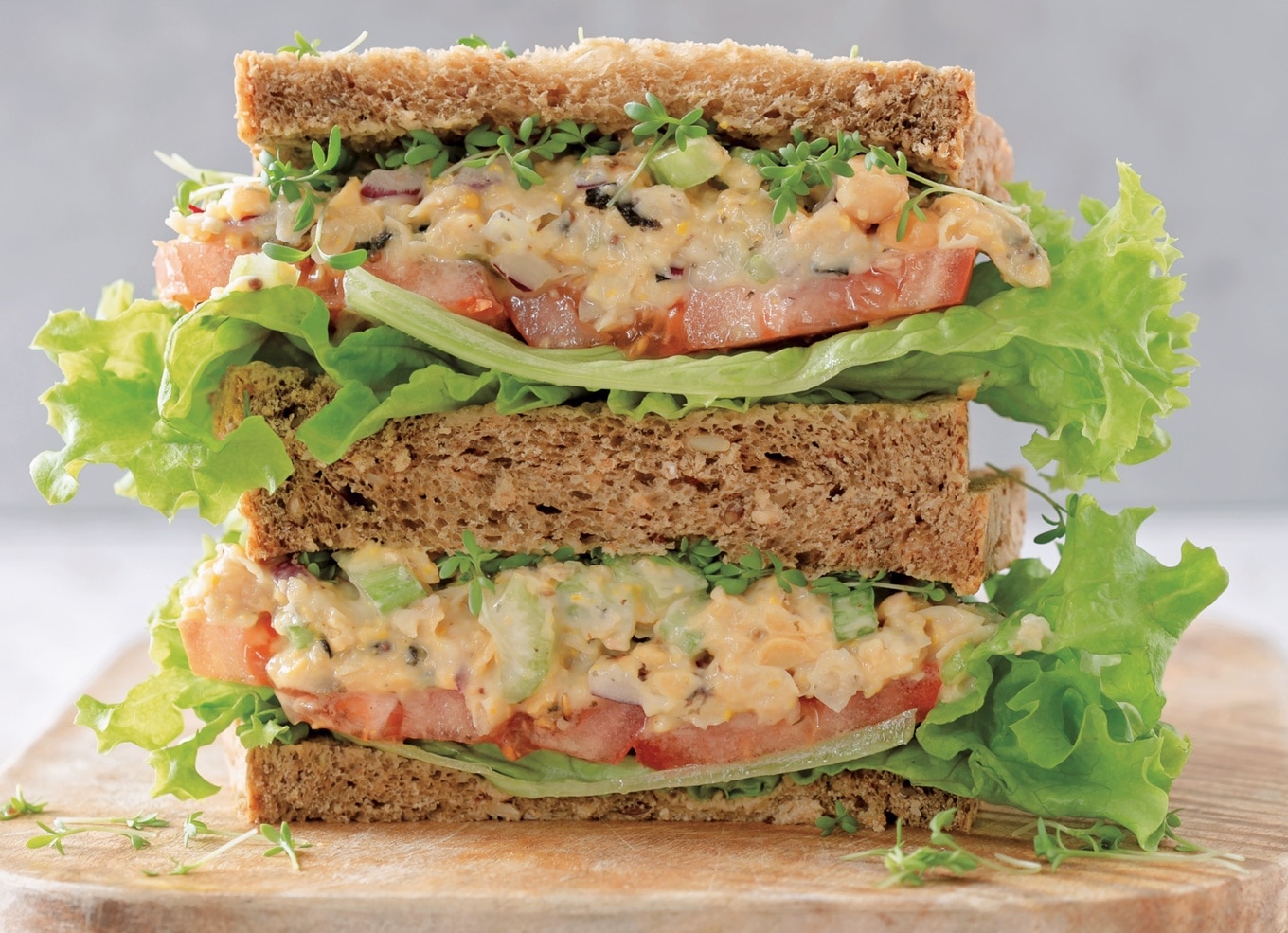
BECOME A VEGNEWS VIP: Get exclusive product deals, freebies, and perks galore!
Author and television personality, chef Priyanka Naik, also recommends chickpeas as an accessible and affordable option. “Cooked chickpeas from a can, or homemade, is a great, accessible, and inexpensive replacement for tuna in a tuna salad,” Naik tells VegNews.
Naik’s recipe involves mixing chickpeas with vegan mayonnaise, spices, chopped celery, and green onion for a flavorful and satisfying fish-free tuna salad that works well in both sandwiches and salads.
Chef Rena Awada, owner and head chef at Healthy Fitness Meals, also champions chickpeas as a tuna substitute, particularly for their texture. Her variation on the classic starts with a similar approach but she adds pickles to the recipe for a little hit of brine.
“I personally love using this chickpea ‘tuna’ salad in a wrap with some fresh veggies,” Awada tells VegNews.
Jackfruit: nailing the shredded tuna texture
A staple in Southeast Asian cuisines, jackfruit is known for its ability to mimic the texture of shredded meats. While chefs have been using jackfruit for plant-based pork and brisket, as it turns out, the fruit is an excellent substitute for tuna in dishes that require a flaky or shredded texture.
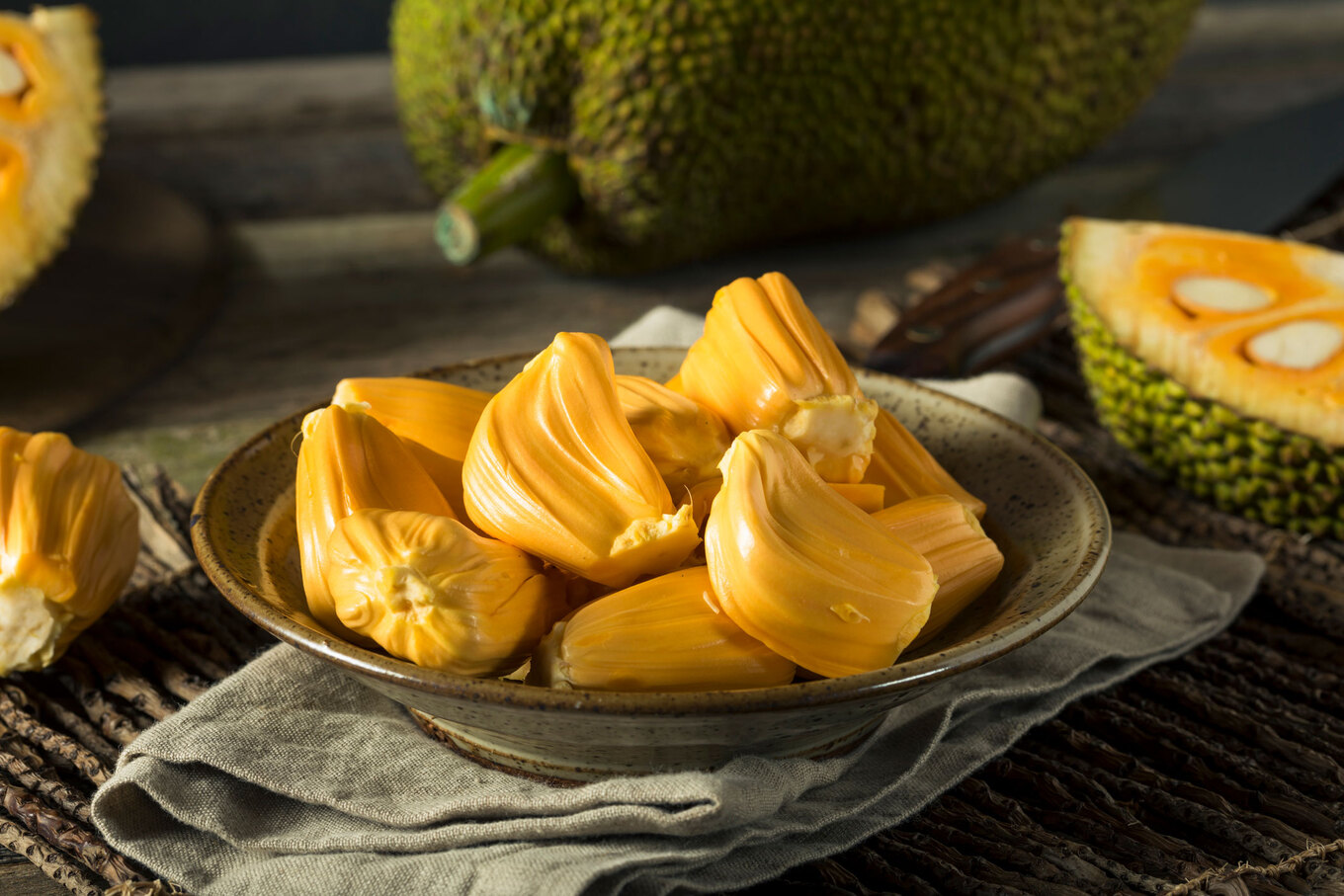 Getty
Getty
Chef and culinary advisor Kevin Ashton has 40 years of culinary experience and, during his time at The Grand Hotel Krasnapolsky, has served VIPs such as Queen Elizabeth II.
He likes to use jackfruit as a substitute for grilled or baked tuna. “For a flaky texture, use young green jackfruit. Its texture, when cooked and shredded, resembles tuna,” Ashton tells VegNews. “Sauté with garlic, onions, and seasonings, then use it in place of grilled or baked tuna in your recipes.”
Naik points out that jackfruit is ideal for achieving that “stringy” texture of canned tuna and recommends using either frozen or canned jackfruit, ensuring it is rinsed thoroughly to remove any residual sugar syrup or water before shredding.
The jackfruit can then be mixed with seasonings and other ingredients to create a flavorful tuna alternative.
Tofu: a blank canvas for flavorful, fish-free tuna
Tofu’s versatility and ability to absorb flavors also make it an ideal candidate for creating vegan tuna alternatives.
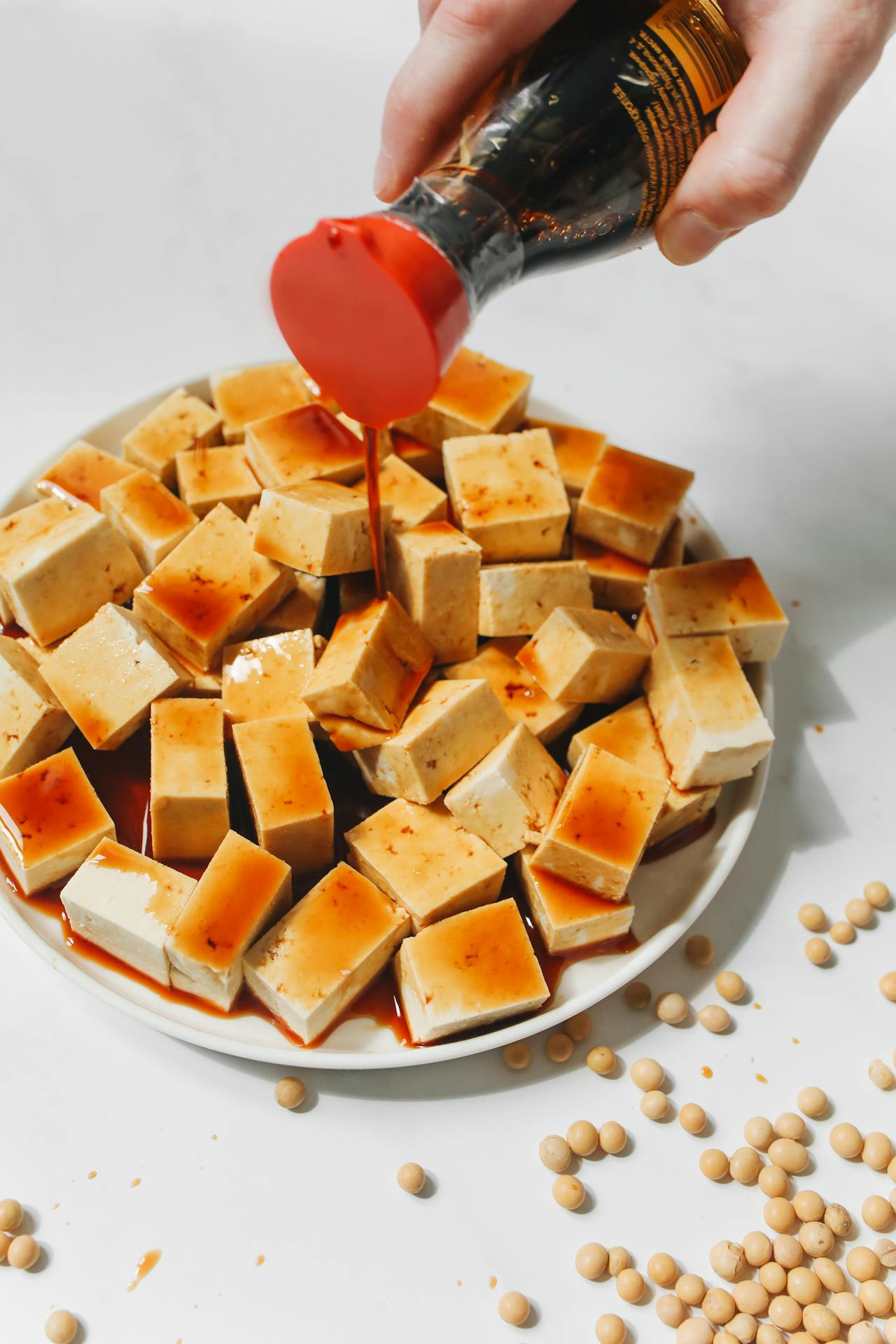 Polina Tankilevitch/Pexels
Polina Tankilevitch/Pexels
But some might find the soy-based protein a bit bland. To fix this, Naik suggests slicing tofu accordion-style to maximize its ability to absorb marinades.
“Marinate it in nori with mushroom or vegetable broth, soy sauce, and some miso paste, then bake, air-fry, or sear it,” Naik says.
Awada is also a tofu-as-tuna fan. “I love tofu because it takes on the flavors of whatever you mix it with—this makes it so much easier to create your desired tuna flavor,” the chef says.
To recreate tuna flakes with tofu, Awada suggests first pressing and draining the tofu, then crumbling it up (with either your hands or a fork). Then season with seaweed, soy sauce, and lemon juice for that oceanic tuna flavor. For a creamier texture, the chef suggests mixing the tuna flakes with vegan mayo.
More ways to make plant-based tuna
While tofu, chickpeas, and jackfruit are among the most popular plant-based bases for homemade tuna, chefs are continually experimenting with other innovative ingredients.
Chef, author, and influencer Zacchary Bird uses textured vegetable protein (TVP) as the nutritious star ingredient in his classic tuna melt, a recipe featured in his The Vegan Butcher cookbook.
“Dulse flakes, lemon, celery, mustard, dill, parsley, and red onion contribute to the classic flavor folded in with my own mayonnaise recipe,” Bird tells VegNews. “This way is easy, delicious, and adds a protein source to the mix.”
Chef Jessica Randhawa, the head chef, recipe creator, photographer, and writer behind The Forked Spoon, suggests using watermelon for a fresh take on tuna. She likes to cube the watermelon and let it marinate in soy sauce, vinegar, and sesame oil in the refrigerator for several hours.
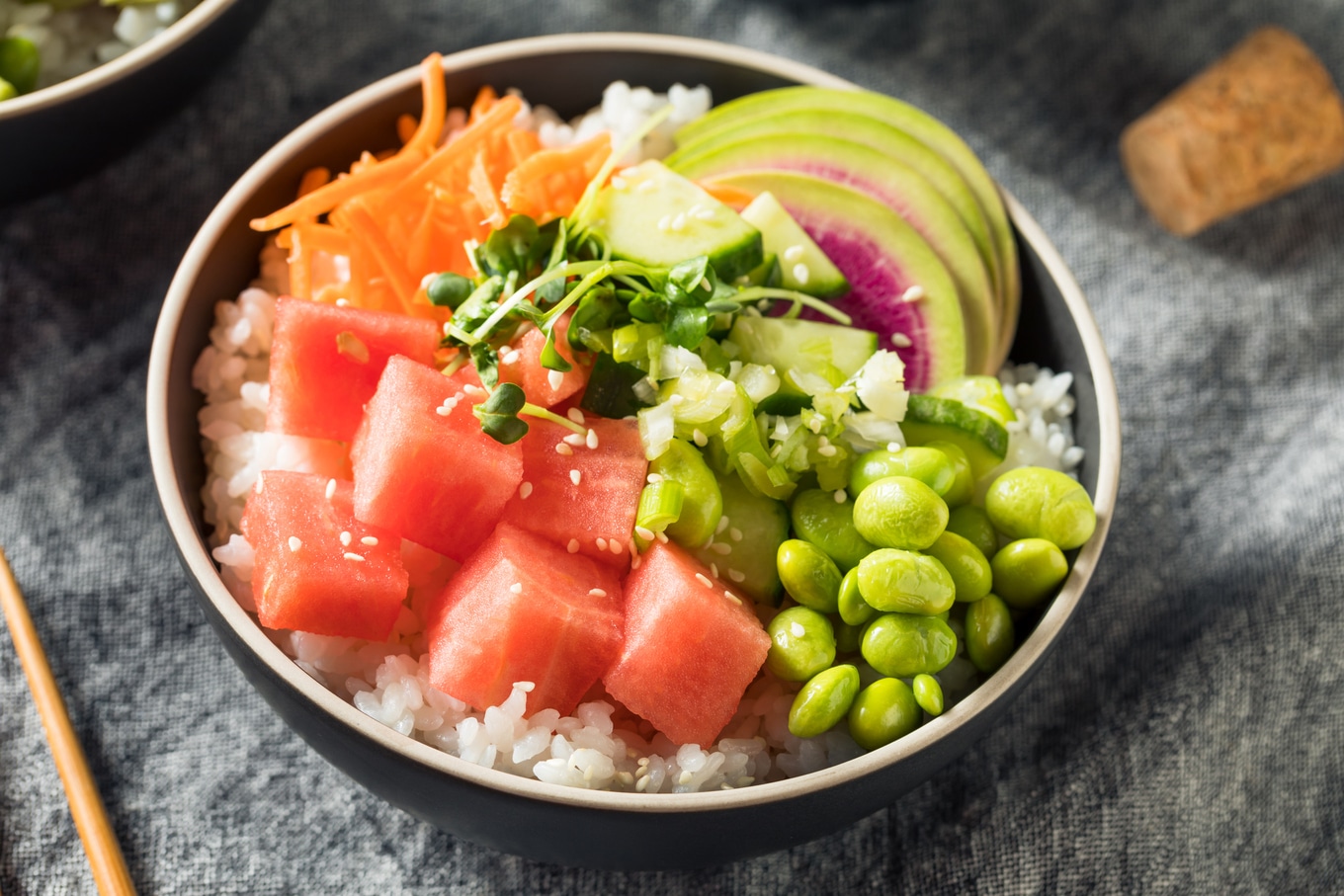 Getty
Getty
“The marinated watermelon cubes offer a refreshing, juicy bite that visually and texturally resembles raw tuna, ideal for a light, refreshing salad or wrapped in nori for a sushi-style sandwich,” Randhawa tells VegNews.
Tempeh, an Indonesian staple made from fermented soybeans, is also favored by chefs as a protein-rich tuna substitute. Ashton likes to use tempeh as a swap for tuna for its ability to develop a golden crust and deliver a savory flavor that complements a variety of dishes.
Randhawa agrees that seared tempeh makes a fantastic alternative to tuna. The chef suggests thinly slicing the tempeh and marinating it in a mixture of soy sauce, sesame oil, and a hint of ginger, then searing it until it’s crispy.
“This preparation yields a savory flavor and satisfying texture that’s comparable to seared tuna, making it perfect for both sandwiches and salads,” Randhawa says.
Whether you’re using chickpeas for a traditional tuna salad, jackfruit for a shredded texture, or experimenting with tofu, tempeh, and watermelon, these chef-approved alternatives offer endless possibilities for creating satisfying, fish-free tuna sandwiches and salads that retain the classic taste without negatively impacting the ocean.
For more plant-based stories like this, read:
JUMP TO ... Latest News | Recipes | Guides | Health | Subscribe

